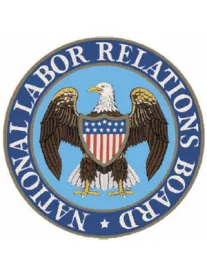Employers waiting for the National Labor Relations Board’s revisions to union election rules will have to wait a bit longer. According to the latest agency regulatory agenda, that is a “long-term” action item, a downgrade from its prior ranking. This is a possible indication that revisions to the rules have become a less important priority for the Board for the upcoming year than issuance of joint-employer rules. The Board announced its intent to consider revisiting the election rules in December 2017. See Labor Board Asks: Retain, Modify, or Rescind ‘Quickie Election’ Rules?
Among other significant changes, the Obama-era representation election rules, in effect since April 2015, significantly shortened the time between the date of the filing of a petition for an election with the NLRB to the date the election is held. The rules also require pre-election hearings generally to be held beginning on the eighth day after the filing of a representation petition and require employers to provide union representatives with more information on potential voters than in the past. The rules, often referred to as the “quickie” or “ambush” election rules, have been criticized since their inception as a hindrance to employers’ ability to respond to and educate employees about the impact of union organizing activity.
According to Law360, NLRB Chairman John Ring told attendees at the American Bar Association’s labor and employment conference in San Francisco that the Board will engage in rulemaking to change the rule, but will do so issue by issue, rather than taking on the entire rule at once. According to Ring, the Board will release the first in a series of proposed rules this winter, covering the NLRB’s blocking charge policy and voluntary recognition bar.
Meanwhile, the Board is moving forward with its proposed revisions to the standard for determining joint-employer liability under the National Labor Relations Act. See NLRB’s Proposed Rule Adopts Pre-Browning-Ferris Joint-Employer Standard. The window for public comment on the proposed rule closes on December 13, 2018.
contributed to this article.





 />i
/>i

